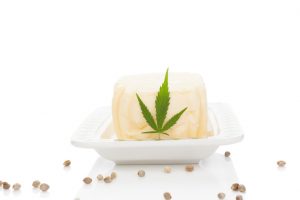Fast and Easy Cannabis Potency Testing Using an Entry Level
 Modern Canna is proud to be the only certified Leafly partner in Florida
Modern Canna is proud to be the only certified Leafly partner in Florida
As the marijuana edibles industry continues to flourish, manufacturers continue to push creative boundaries, offering up a tantalizing mix of sweet and savory foods and beverages that advertise both enticing flavors and potent effects. From premium chocolates and fruit bars to THC-infused kombucha teas, cannabis edibles are often touted as a safer way to experience the pain-relieving effects of tetrahydrocannabinol. One problem remains: How do patients really know that they're getting the right dose? That's why cannabis THC testing for edibles from the the industry leading lab at Modern Canna Science is so valuable.
 A recent study suggests that many cannabis edibles do not have the THC concentrations advertised, posing a real danger to patients, who may get too much or not enough of this medically significant cannabinoid. Compounding matters is the fact that nearly a quarter of all medical cannabis patients in the United States get their THC from edible products such candies, oils and baked goods.
A recent study suggests that many cannabis edibles do not have the THC concentrations advertised, posing a real danger to patients, who may get too much or not enough of this medically significant cannabinoid. Compounding matters is the fact that nearly a quarter of all medical cannabis patients in the United States get their THC from edible products such candies, oils and baked goods.
How to test THC levels in edibles
Edibles are actually hard to test reliably. One of the best ways to test THC levels with precision is by using high pressure liquid chromatography (HPLC) – a very sensitive device that analyzes chemical components. While HPLC is a quick and easy way to test THC in medical labs, it's not the best solution for analyzing THC levels in edibles. Liquid chromatography equipment is not designed to handle gummies, cookies, brownies or red velvet cake. The sticky, course ingredients in marijuana edibles can ruin the instrument, and extracting THC from edibles is a challenging process.
Modern Canna Science recognizes the importance of accurate THC testing in edibles and employs the latest techniques and methods for testing cannabinoid-containing products. How do laboratories test THC levels in edibles correctly and without damaging their equipment? The answer lies in a process called cryo-milling, where the edible product is flash frozen and then pulverized into tiny pieces.
How to test THC reliably in edibles
When purchasing a THC-laced cereal bar or ice cream snack, patients should be able to trust that the package labeling is correct. Unfortunately, this is not always the case. According to a recent marijuana edibles study – conducted by a team at Johns Hopkins University – only 17 percent of edibles were accurately labeled in regards to THC concentration. Of the 75 edibles tested, 23 percent had more THC than advertised, while 60 percent had less. The researchers found that some edibles contained significantly more THC than labeled (up to 50 percent more), placing patients at risk of experiencing serious adverse effects. In contrast, lower than anticipated THC levels could lead to ineffective treatments.
Scientific analysis techniques are constantly evolving, particularly in the area of THC and cannabinoid testing. In creating a better, more accurate THC test for cannabis edibles, the product is frozen with dry ice or liquid nitrogen and then placed in a high speed blender with diatomaceous earth – an abrasive substance that enables solvents to draw out the THC. The solvent is then placed in a flash chromatography column that separates various chemical components. When the THC is extracted from the column, it can be tested in the usual manner, with high pressure liquid chromatography.
This method provides very dependable results and is far more accurate than most product labeling, which research has shown fails to meet basic label accuracy standards for pharmaceuticals. Medical marijuana edibles have the potential to be a safe and effective means of achieving therapeutic effects, but only when patients are provided with correct THC dosing information.
Test THC Potency with Modern Canna Science
Until the laws that govern how edibles should be tested and labelled conform to uniform regulations from state to state, medical marijuana patients can depend on Modern Canna Science for accurate cannabis edibles testing.
Headquartered in central Florida, our state-of-the-art laboratories offer a full menu of THC testing for extracts and edibles, as well as cannabinoid profile services. To learn more about testing THC levels in edibles, we encourage you to reach out to Modern Canna using our online contact form.
Additional Resources on Testing THC Concentration in Edibles:
- Forbes, Building A Better Test For Marijuana Edibles https://www.forbes.com/sites/samlemonick/2016/03/25/building-a-better-test-for-marijuana-edibles/#10ecb56737c4
- Cannabis Safety Institute, Standards for Cannabis Testing Laboratories http://cannabissafetyinstitute.org/wp-content/uploads/2015/01/Standards-for-Cannabis-Testing-Laboratories.pdf
- Motherboard, How to Test the Potency of Pot-Infused Foods
https://www.vice.com/en_us/article/ae3ppk/how-to-test-the-potency-of-pot-infused-foods
Source: https://www.moderncanna.com/testing-thc-levels/edibles/
0 Response to "Fast and Easy Cannabis Potency Testing Using an Entry Level"
ارسال یک نظر